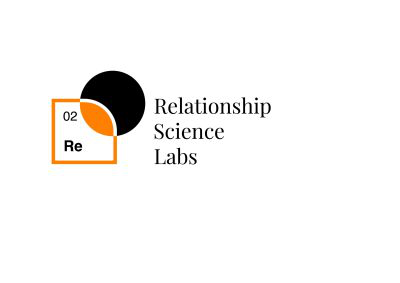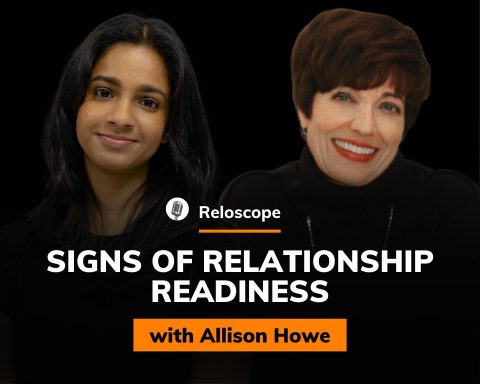“The meeting of two personalities is like the
contact of two chemical substances:
if there is any reaction, both are transformed.”
— Carl Gustav Jung
Imagine setting yourself up for an expedition — a journey that will expose you to unpredictable challenges and significantly change your life. Would you embark on such a journey without proper knowledge, gear, and skills? Probably not. Now consider this: serious relationships are their own journey, with numerous challenges along the way. They require mental and emotional preparedness for them to last.
The importance of emotional and mental preparedness is not highlighted often. However, it’s important to understand how to manage and fulfill them to ensure a smooth relationship. They’re not casual encounters but an important element that shapes your future, happiness, and well-being.
In this article, you will discover the signs of emotional and mental readiness for a serious relationship. You will also learn how self-awareness, communication skills, and emotional maturity are vital in building lasting relationships.
Let’s first understand what emotional mental preparedness is and how it leads couples to build a strong, fulfilling relationship.
Understanding emotional and mental preparedness
The ability to manage emotional experiences plays a central role in interpersonal functioning and maintaining good relationships. It empowers couples by equipping them with empathy, communication, and resilience to navigate the complexities of human relationships successfully. It also enables them to provide emotional support to each other leading to a healthier relationship.
Read more: Understanding the Role of Emotions: How Emotional Intelligence Helps
Embarking on the journey of a meaningful relationship, it is important to assess your readiness and relationship preparedness. This can ensure that both you and your partner are on the same page.
Key indicators of relationship preparedness
Certain key indicators lay the foundation of a healthy and lasting relationship. These indicators ensure that couples can navigate the complexities of a relationship with understanding and good communication.
Here are some of the key indicators of relationship preparedness that can help you transform your relationship:
Self-awareness
Self-awareness plays a big role in relationships. It is understanding who you really are and being in touch with your emotions, values, beliefs, and emotional needs and triggers. It gives an individual an identity of self so they can partake in a relationship with emotional maturity and resilience.
Read more: Self-Identity: Who are You, Really?
Self-awareness brings clarity and stability in a relationship. When a partner is aware of their emotions and what’s causing them to feel a particular way, they then don’t expect their partners to read their minds. Instead, they clearly communicate it to them to sort it out.
Communication skills
According to research, good communication skills in relationships not only protect relationships through better conflict management but also enrich relationships by capitalizing on the positive aspects of the couple.
Having a relationship built on excellent communication supports an everlasting bond. Of course, all relationships have ups and downs, but a healthy communication style between partners ensures that all relationship challenges are dealt with timely and effectively.
Conflict resolution skills
It is said that people often hurt the ones closest to them. While conflict is a part of every relationship, if left unresolved, it can often lead to resentment and affect a relationship.
Conflicts can often be characterized by aggression, attacking the partner personally, or withdrawing from the relationship. It is, however, important to understand that letting destructive strategies for conflict rule over you can cause relationship dissatisfaction, eventually ending the relationship.
A keenness in problem-solving and willingness to stick by during an argument is associated with positive relationship outcomes, according to research. Good conflict resolution skills include talking calmly about the problem, making compromises, and reaching a solution that benefits both sides.
Emotional stability
Emotional stability is the ability to manage emotions under stressful conditions. It is one of the key traits needed for a stable relationship and requires owning your emotions and feelings. In other words, it means knowing why and how you behave instead of blaming it on your partner.
Partners who are emotionally stable tend to have healthy relationship boundaries in place, they accept their partners as a whole and are good at expressing their needs and wants to each other.
Read more: Creating Healthy Boundaries in a Romantic Relationship
Of course, this doesn’t mean that emotionally stable partners never feel angry, sad, or frustrated. They do. They just have better coping mechanisms and, thus, know how to manage their feelings better and avoid taking it out on their partners.
In conclusion
Building a strong foundation for a relationship may seem easy. However, it requires a lot of dedication, patience, and mental and emotional preparedness. Serious relationships require emotional maturity and a willingness to make it work. They’re based on good communication styles, emotional stability, healthy conflict-resolution skills, and self-awareness.
Before heading for a relationship, reflect on your emotional and mental preparedness for relationships. Ask yourself, “Am I aware of my emotions and needs?” and “Can I communicate openly?” Remember: your journey to healthier relationships begins with the readiness to grow and evolve emotionally and mentally.
If you would like to see more resources on relationship readiness, check out the Relationships Science Labs. The lab uses the research of the Institute for Life Management Science to produce courses, certifications, podcasts, videos, and other tools. Visit the Relationship Science Labs today.
Photo by senivpetro on Freepik




